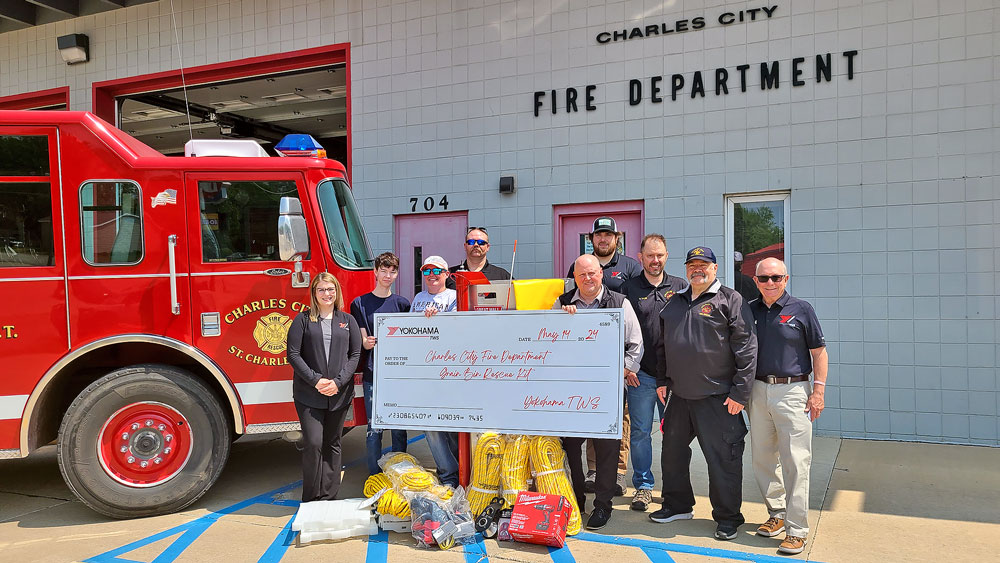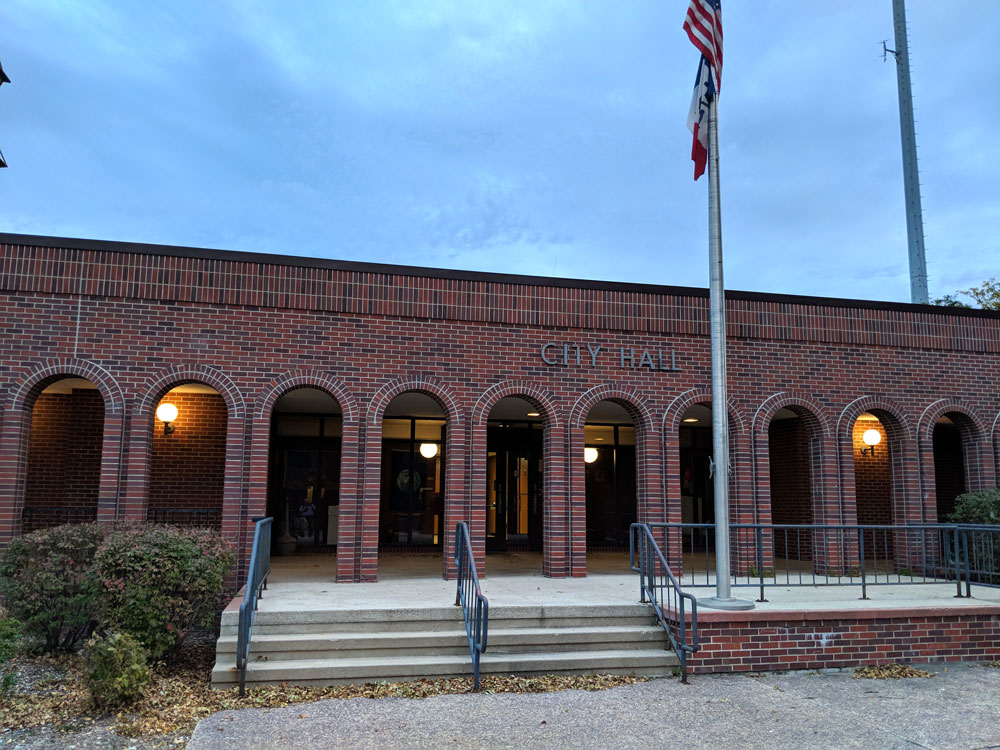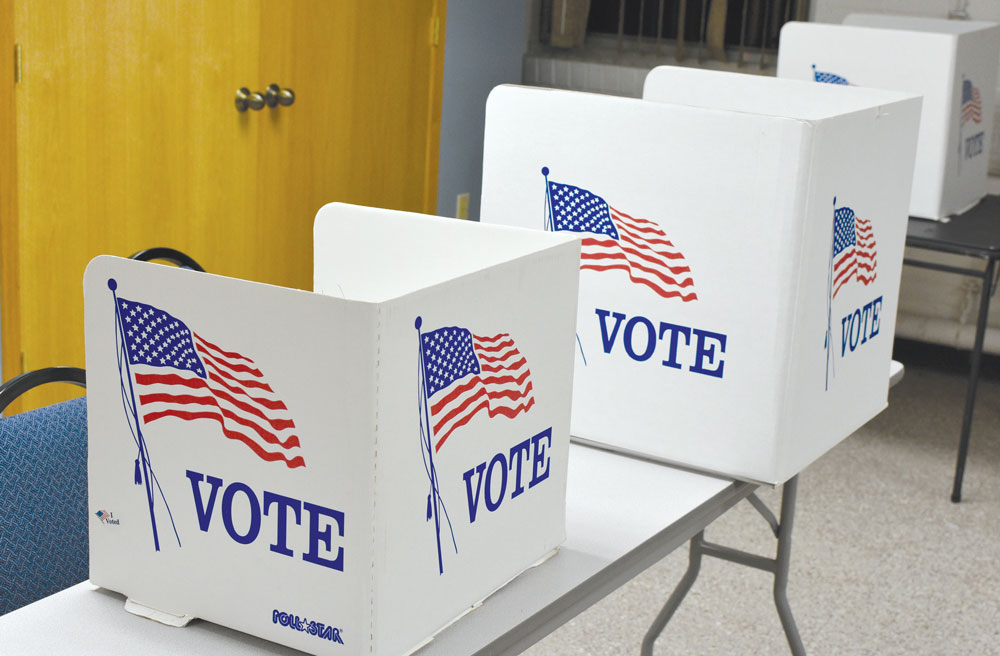Floyd County Ambulance Commission looks at numbers for new public service

By Bob Steenson, bsteenson@charlescitypress.com
A new publicly operated ambulance service with three ambulances could be created for about $1 million in start-up costs, according to numbers discussed at a Floyd County Ambulance Commission meeting Tuesday evening.
The cost to run the service, including employee wages – which make up the vast majority of the costs – could be almost $850,000 a year, and total revenue for providing service could be about $936,000 a year, resulting in an annual positive balance of more than $86,000, or about a 9% operating margin.
The numbers were compiled by Charles City Fire Chief Eric Whipple, based on figures he said he received from several other fire departments that run ambulance services, including Iowa Falls and Hiawatha, then extrapolating them for the level of service and number of calls handled by the current private area ambulance, American Medical Response (AMR).
Whipple acknowledged his numbers were only estimates, but they were based on the most accurate information he could find.
The commission took no action on the numbers, and Commission Chair Keith Starr, a Charles City Council representative on the commission, suggested that the members “take the information we have and sift it through, because it takes only a minor shift to take it from a positive to a negative.”
The issue is expected to be on the agenda again at the commission’s next meeting, Aug. 9.
Whipple said part of his assumptions were that a new service would use the existing ambulance storage and ambulance service office space and sleeping quarters that the city of Charles City recently built for AMR at the city fire station and provide a level of service similar to what AMR is providing now.
The idea of starting a public ambulance service, possibly run by the Charles City Fire Department, has come up again as Floyd County and Charles City entered the third year of their current three-year contract with AMR, which began July 1.
The city and county are each paying AMR $100,000 this year to help purchase services for residents, or $200,000 total, up from $175,000 split between them last year and $150,000 split between them the first year.
Numbers presented at the ambulance commission meeting showed an estimate of $226,000 by an AMR regional director for the cost of the first year of a new AMR contract if one is signed to begin July 1, 2023, with about a 5% per year increase for each additional year. It also included options for increased levels of service for more than double the current rate.
A comment was made at the Tuesday meeting, as it has in previous meetings, that the city and county are happy with the service they are receiving from AMR, but they are concerned about the annual charge and wondering if there are other options.
Several members of the ambulance commission asked if Whipple’s numbers included the cost to save up for equipment replacement as needed, including the need to buy new ambulances from time to time, at a cost of $200,000 each.
He said the expense figures did not include a fund for replacement costs, but the departments he talked with use their annual positive balance to create a fund for future expenses.
Starr said that a new service could also save money by buying used ambulances, for example.
AMR has said that it, like many health care providers, has faced revenue challenges since public health care such as Medicaid as well as private insurance companies have drastically reduced the percentage of charges for service that they will cover.
Whipple’s proposal would use PCC, an ambulance billing service based in West Bend, Iowa, to handle all its billing and collections. He said the company averages collecting 55% of the billed amount, and charges 7.25% of the money collected for its fee, and he used those figures to estimate total revenues.
A publicly-operated ambulance would also be eligible for the Iowa Ground Emergency Medical Transportation (GEMT) Program that provides supplemental payments to cover the difference between a provider’s actual costs and the amount Medicaid pays. That source of income is not included in Whipple’s numbers, he said, because a service must be in operation for at least 18 months before it is eligible.
The idea of starting a new public ambulance service is being given some extra weight this year because of the potential of American Rescue Plan Act (ARPA) funds to help cover the start-up costs of a new service.
ARPA includes money that the federal government is sending to cities and counties to help them recover from COVID-19 pandemic losses and to spur economic growth.
Charles City has a little more than $1 million in ARPA funds and the county has a little more than $3 million, although up to $2 million or more of the county’s money may be used to finish paying for the Floyd County Law Enforcement Center and courthouse update project.
Although initial talk so far has been for a city fire department-operated service, Roy Schwickerath, the county Board of Supervisors representative on the ambulance commission, noted that the way Whipple presented the numbers, it could be a service operated by any public entity, including the county or the Floyd County Medical Center, which is a county hospital.
It could even be a combination of public bodies if they had the proper cooperative agreements in place.
The ambulance commission also discussed the county Board of Supervisors’ consideration of declaring emergency medical services (EMS) as an essential service in the county, making it eligible for annual funding through property tax or income tax surtax or a combination of both.
A 60% or higher majority of county voters would need to pass any proposal to use a property tax or income tax surtax levy to support EMS.
The county passed the first reading of an essential services resolution Monday. It would need to pass again next Monday and a final time on the Monday after that, Aug. 1, to go into effect.
At that point the supervisors would name a county emergency medical services system advisory council “to assist in researching and assessing the service needs of the county and guiding implementation of services in the county.”
The advisory council would then recommend to the Board of Supervisors an amount of funding to be specified on the ballot, but Schwickerath said it would be up to the board to decide the amount to be listed in the ballot, the type of tax required to raise that amount, and even whether to take the issue to a vote.
He said the advisory council’s recommendation would need to be made by late August to give the supervisors time to decide whether to have the question placed on the Nov. 8 general election ballot.









Social Share